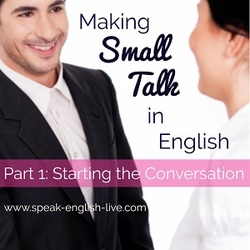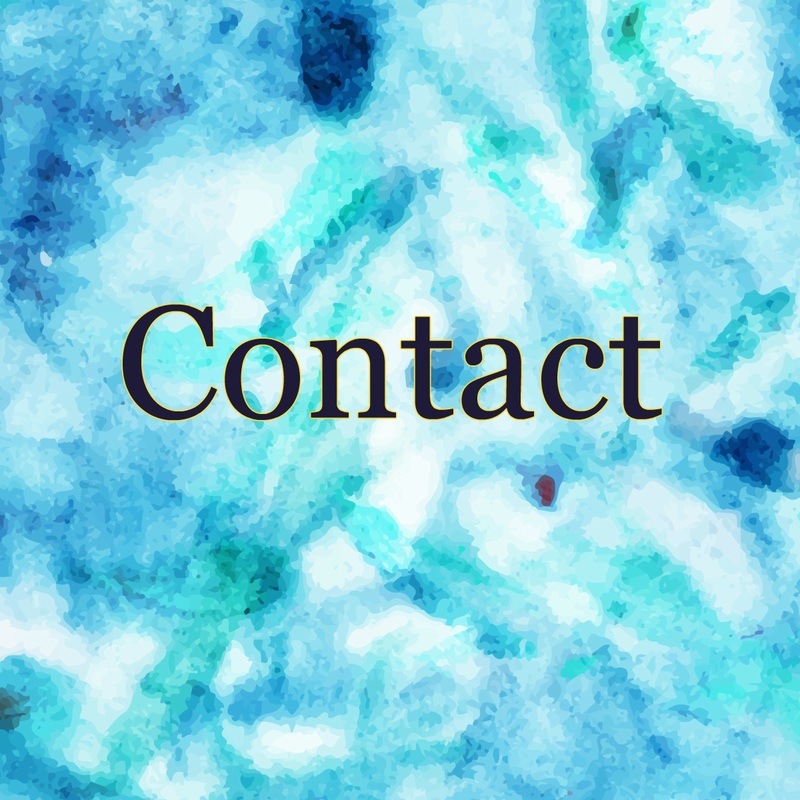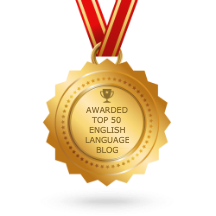|
Like this article? Share it!:
. When we begin to learn a new language, we usually focus on memorizing grammar rules and lists of vocabulary. But if we don't focus on pronunciation as well (by learning how to make the correct sounds and putting stress in the right places), we might not be understood when talking to native English speakers. Besides knowing grammar and a good amount of vocabulary, of course you want to be understood by native English speakers when you speak. That's why it is just as important to focus on developing native sounding pronunciation. "But English pronunciation is so hard, Sabrina!," my students tell me. Yes, English pronunciation can be difficult, but I want to share with you a few resources and tips that can help you start improving your pronunciation today: 1. Repeat after T.V. and Movies ...don't just watch movies. Repeat after the actors when you hear a word or phrase you want to practice. Rewind and watch the same scene multiple times while repeating the words. Better yet, repeat the whole sentence or the whole scene that you want to practice. I recently learned that this technique of repeating after video or audio is called 'shadowing'. Shadowing is even used by actors who want to practice different accents. Professional translators who want to improve their pronunciation (and quick thinking!) use this trick too. This is an exercise that my friend Nao used to learn how to really speak English. You can read more about Nao's journey to speak English here. Hearing and repeating after native speakers is a great way to practice natural, real English pronunciation. If you don't have access to native speakers where you live, Hollywood is here to help you! Maybe you won't understand all of the words, and maybe you won't be able to make all the sounds. Do your best, and you will get better with time. For more tips on how to use movies and T.V. to improve your English, go here to read my other post about studying English through watching movies. 2. Study Pronunciation with YouTube Videos There are so many brilliant videos and channels on YouTube that are dedicated to helping people learn English. Some of these YouTube channels are specifically for practicing your pronunciation! Here are 2 of my current favorite channels for practicing American English pronunciation: Rachel's English Rachel's videos can be somewhat technical, but are perfect for the advanced student who wants to take their pronunciation to the next level. This is a helpful channel if you are looking to learn how to make specific American English sounds. Rachel also gives some great advice on pronunciation exercises in this video: (If you can't see this video on YouTube -for example, if YouTube is blocked in your country- go here to watch it directly on Rachel's English website.) Go Natural English (Gabby Wallace's channel) My other current favorite channel is Go Natural English. Gabby is so friendly in her lessons! She has a lot of videos on casual English pronunciation. Casual English is important because it is exactly what you will usually hear. Even in most academic and business settings, native speakers use casual English. Here is a video on one of the most common "secret" sounds in English: And last, but not least: Calm English with Sabrina Make sure to follow my YouTube channel as well, Calm English with Sabrina. If you are looking for more study tips and American English pronunciation practice, I have a weekly pronunciation series you can follow. Remember to use all these videos in a similar way by shadowing - just like you should be doing with movies or T.V. programs. Your pronunciation will only improve if you actually speak and practice out loud, so practice, practice, practice! 3. Ask for help! Asking for help is sometimes the hardest thing to do when looking to improve your pronunciation. But if you actively ask for help from others, you will quickly see your pronunciation improve. Who can you ask for help? I recommended asking your friends, your co-workers and your language exhange partners to help you when you make mistakes in pronunciation. Make sure to DIRECTLY tell people that you would like to be corrected. In the U.S., so many people have a first language other than English. We get used to hearing foreign accents, and we don't correct other people's pronunciation because we consider it rude. But if a friend were to directly ask me, "Hey, Sabrina, I need help with my pronunciation. Will you help me as we chat?" I would know it is okay to correct my friend. One problem with asking for help: maybe you don't have anyone you can ask. Sometimes we just want to relax and have a good time with our friends. You might not want to ask your friends to correct you. Or maybe your only contact with native English speakers is through your boss or clients. You probably don't want to ask them to correct your pronunciation because it wouldn't be professional. In this case, I would recommend you find a nice language exchange partner and an English tutor/online English teacher right away! I am currently using italki and I have found lots of language exchange partners for my Japanese studies. There are so many people looking to study many different languages on this site. You can go to www.italki.com to sign up. And if you would like to take English classes with me, you can see my profile (and sign up) here: www.italki.com/speak.with.sabrina. (These are affiliate links.) If you already have an English teacher or tutor, make sure to tell them you would like to focus on pronunciation. If your teacher knows about your goal of improving your pronunciation, they will be more likely to help you! If you follow this simple steps and take the time to practice your pronunciation, you will start to sound more fluent in English quickly. Which of these tips will you use to improve your pronunciation? Tell us in the comments below!
1 Comment
kristbernard
27/11/2015 08:20:32 am
Reply
Leave a Reply. |
Click to Learn About
|









